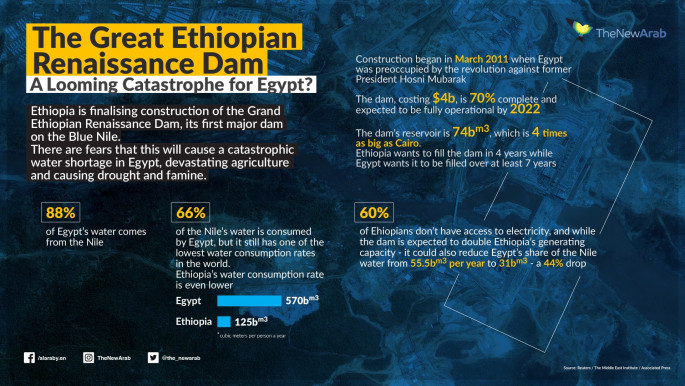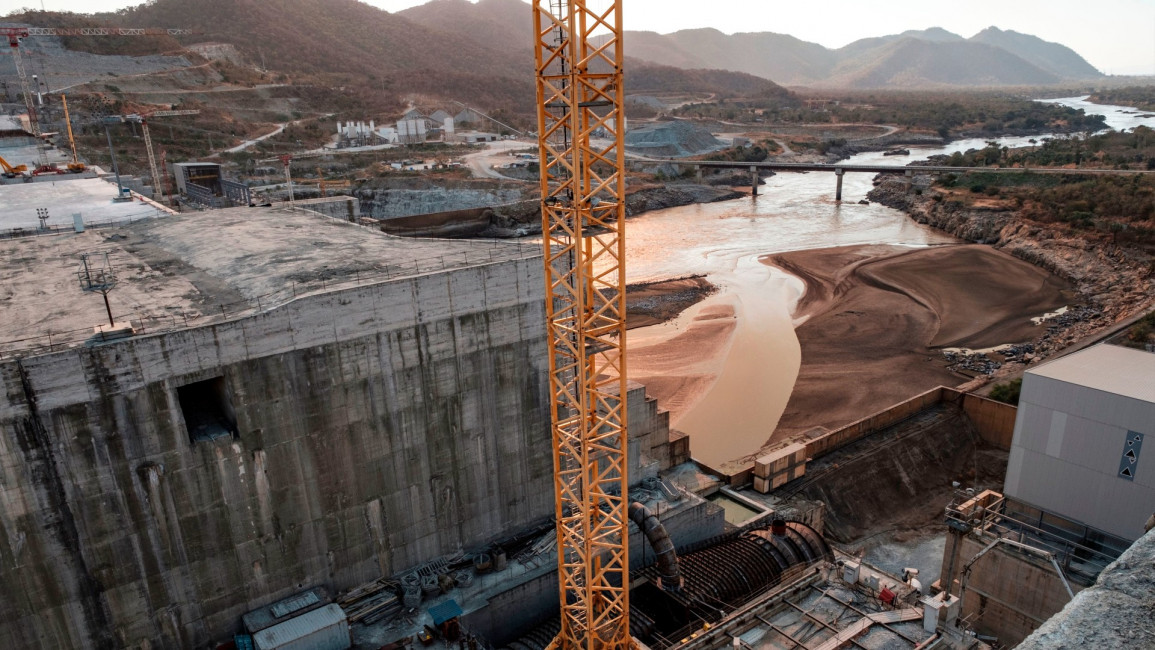Egypt, Sudan reject Ethiopia's data-sharing proposal as mega dam rift continues
"Ethiopia invites Sudan and Egypt to nominate dam operators for data exchange before the filling of GERD in upcoming rainy seasons," Ethiopia's foreign ministry wrote in a tweet on Saturday.
"Sudan believes that exchanging information is a necessary procedure, but that the Ethiopian offer to do so in the manner indicated by their letter implies suspicious selectivity in dealing with what has been agreed upon," Sudan's irrigation ministry said on Saturday, according to Reuters.
|
||
Talks between the three states in Kinshasa ended in recriminations earlier this week, with Ethiopia's foreign ministry slamming Egypt and Sudan's "rigid stance" on Twitter.
The Kinshasa round concluded with Addis Ababa reaffirming that it would be continuing with its scheduled second-year filling on the dam.
Sudan has said it will hold 600 million cubic meters of water at its Jebel Awliya reservoir to "ensure the continued operation of the pump stations on the White Nile and the Nile river to meet agricultural and drinking water needs" in preparation for the second fill, Sudan's official SUNA news agency reported on Saturday.
In a similar response, Egypt's irrigation minister said in a televised interview on Saturday that Aswan High Dam reserves could help maintain regular water supplies, however expressed concern over drought management.
The mega dam project has been a source of tension in the Nile River basin ever since Ethiopia broke ground on it in 2011, with Khartoum and Cairo concerned that the dam will drastically impact water supplies from the Blue Nile.
Ethiopia says power produced by the GERD will be vital to meet the development needs of its 110 million people.
But the two countries downstream fear that their supply of life-giving water will be threatened, with potentially catastrophic consequences.
Egypt, which depends on the Nile for about 97 percent of its irrigation and drinking water, sees the dam as an existential threat.

Follow us on Facebook, Twitter and Instagram to stay connected


![President Pezeshkian has denounced Israel's attacks on Lebanon [Getty]](/sites/default/files/styles/image_684x385/public/2173482924.jpeg?h=a5f2f23a&itok=q3evVtko)



 Follow the Middle East's top stories in English at The New Arab on Google News
Follow the Middle East's top stories in English at The New Arab on Google News


